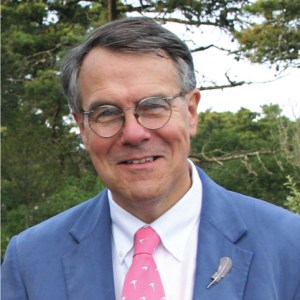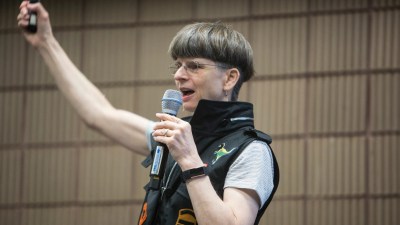
Nearly a career ago, I visited a mentor and friend at the historical society he directed on a Saturday afternoon. As we sat in his office chatting, I heard a phone ring in the society’s library a long way down a cavernous hall. It rang and rang for a good five minutes, without anyone picking it up or it going to a message. I asked my friend, “Do you need to answer that?” He shrugged, “Nah, it’s just a genealogist.” We shared a chuckle that I am now ashamed of; I look back upon the moment as a missed opportunity. Forty years later, I still think about the passionate person on the other end wishing to connect with someone who could connect them.
I bring this up because making connections is of keen interest to older adults, not only in the tracing of roots but in the increasing preoccupation we take on with matters of legacy as we age. What stories can we leave behind, we wonder. Who among us, for example, has not thought, “If I only had the opportunity to ask granddad and grandma what brought them to this country, how they met, or how fearful they were during WWII?” As I write this I am hearing in my mind the Simon & Garfunkel song “Bookends:” “Time it was, oh what a time it was…I have a photograph / Preserve your memories, they’re all that’s left you.”
There is a stunningly simple and inexpensive way museums can help people preserve their memories: by holding writing workshops. I know from experience that they work; we have convened them in several of the museums I have directed. The formula is simple: find a conducive and hopefully inspiring setting, invite a noted author (from either your area or elsewhere) interested in teaching about their craft, advertise the opportunity, and “Bob’s your uncle!” You now have a writing workshop!
Let me tell you about two that we held at the Nantucket Historical Association. We chose a magical artist salon in our collection of sites as the venue, and I invited two close friends who were extremely well-respected writers to come visit us. In exchange, we provided these writers a modest honorarium, a place to stay, and plenty of free time to ply their own trade before and after the workshop. We asked each to give a public talk the evening before the workshop, and then convened them with the ten or so older adults who had signed up to learn more about the art of writing.
Skip over related stories to continue reading articleOur first writer-in-residence was Kim Stafford, the head of the Northwest Writers School in Portland, Oregon. Housed on the campus of Lewis & Clark College, Kim had been teaching writing for many years and was himself a highly respected author and poet. While on Nantucket, Kim not only taught and lectured, but also wandered and wrote, and in the end he left us with exquisite insights into island life that we, who had been residents for many years, had somehow missed. This was the gift of affording visiting authors with some fruitful free time while they visited.
Our next visiting author was John Mitchell, Mass Audubon’s “Curious Naturalist,” a regular columnist in the association’s award-winning magazine, and clearly the chief reason many became members. John writes a wide variety of topics chiefly pertaining to our relationship to our natural environment. His workshop was as engaging as Kim’s and, as you would expect, focused the participants’ attention on the natural landscape of Nantucket, helping the budding writers pass along their love of the island to those who will follow.
It is hard to put in words the power of these simple and informal workshops, and to assess their impact on the participants. I saw the impact in the affirming looks in our students’ eyes and the heartfelt thanks they offered our two authors as they departed Nantucket. “Nantucket!” Herman Melville says in Moby-Dick, “Take out your map and look at it. See what a real corner of the world it occupies!” Our visiting writers helped our students capture this “real corner of the world” for those who would come next; be they relatives, friends, or future kindred spirits who might read their words and smile in years to come.
The writing workshops were simple, inexpensive, and highly successful. I recommend them to readers as a way to deeply engage active older adults in the living history we strive to interpret. Museums are our places, as communities, and they are at their best when they provide a home for our understanding and affections. And we as visitors are at our best when we find a home in such places.
Writing workshops. Think on it! And, if that library phone rings way down the hall, Saturday or not, answer it!









Comments